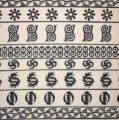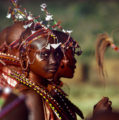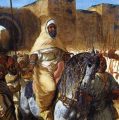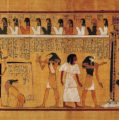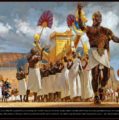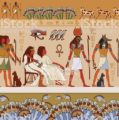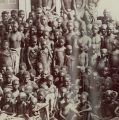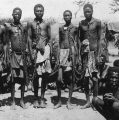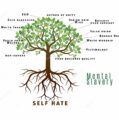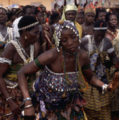


Relevant Development Lens
Also read | Agency | Failure to Engage | Garvey Economics| Art of Revolution
If you’re deaf, dumb, and blind to what’s happening in the world, you’re under no obligation to do anything. But if you know what’s happening and you don’t do anything but sit on your ass, then you’re nothing but a punk–Assata Shakur
The theoretical world of Development is a divided world. Development theory is essentially split into two worlds, the Liberalist-Capitalist mold and the Socialist-Communist mold. Some theorists also propose to fall somewhere in between the two extremes but many can be criticized of indecision. Whichever theoretical school they choose, it is typically necessary for Development theorists to state where they lay with reference to the two extremes.
In the proposed study I will use the Socialist line of analysis as proposed by Rodney as one of my analytical tools and will attempt to wrestle with some modifications that are necessary to the Marxist model in order to make it more relevant to the context of African history and culture. This re-evaluation of the unadulterated Socialist analysis is useful not only in tailoring Socialist analysis and making it more applicable and relevant to the context of Africa but also to look back in hindsight at African philosophy and rhetoric related to the concept of Development and to evaluate whether the African personality, in general, and the Zulu personality, in particular, was typically Socialist, typically Capitalist, or unique (neither). In doing so, establishing where along the spectrum Africans rest, it might point the way forward to a solution of where Africans must go next if they are to value the idea of cultural continuity and a solution based upon authentic roots.
Choosing a Relevant Development Lens
Other theories of Development did not prove particularly relevant except, perhaps, Modernization in a remote sense. Although Modernization is founded upon Classical Liberalism or Capitalist theory, diametrically opposed to Rodney’s Socialist theory, it also exhibits similar problems of cultural relevancy since it too is primarily materialist and purports the idea that the most accurate Development trajectory is that of the already developed, industrialized nations of Europe and the Americas. With its emphasis on concepts of international trade and the free market it is not as particularly useful in analyzing changes in social relations in the distant African past where Communalism and Feudalism featured greatly but rather more relevant for making predictive pronouncements about future development in the near future. It could, therefore, be mildly useful in exploring a way forward for the surviving Zulu people of today.
Defining Development
In defining Development, I have used Rodney’s description. This definition of Development implies, on an individual level, increased skill and capacity, greater freedom, creativity, self-discipline, responsibility, and material well-being. However, he insists that understanding the social relations that develop between groups in a society are even more important in defining how that society develops.

Walter Rodney
He posits that a society develops economically as its members increase jointly their capacity for dealing with the environment. This capacity for dealing with the environment is dependent on the extent to which they understand the laws of nature (science), and on the extent to which they put that understanding into practice by devising tools (technology), but still more importantly, on the manner in which work is organized. He further posits that as human beings battled with the material environment, they created forms of social relations, forms of government, patterns of behavior, and systems of belief that together defined these social relations and constituted the superstructure of that society, which was never the same in any two societies. Rodney proposes that it is this difference in superstructure explains why different peoples developed at different rates (Rodney 1981).
For Rodney, the growth of specialization and a more professionalized division of labor led to more production but on the other hand led to greater inequality in the distribution of wealth and resources. So, in Rodney’s formulation this increased specialization of tasks (artisans, soldiers) is not what accelerates development. It is only when this increased specialization ties into the complex of a more advanced superstructure of social relations that greater development can occur (Rodney 1981).

Karl Marx
Rodney’s outlook is strictly materialist and is admittedly founded on Socialist theory that is itself based upon the theories of Karl Marx. Writing in the 19th century, Marx distinguished within European history several stages of development.
“The first major stage following after simple bands of hunters was Communalism, where property was collectively owned, work was done in common, and goods were shared equally. The second was Slavery, caused by the extension of domineering elements within the family and by some groups being physically overwhelmed by others. Slaves did a variety of tasks but their main job was to produce food. The next stage was Feudalism, where agriculture remained the principal means of making a livelihood, but the land which was necessary for that purpose was in the hands of a few, and they took the lion’s share of the wealth. The workers on the land were no longer the personal property of the landowner, but were tied to the land of a particular manor or estate. Then came Capitalism, under which the greatest wealth in the society was produced not in agriculture but by machines-in factories and in mines. Like the preceding phase of Feudalism, Capitalism was characterized by the concentration in a few hands of ownership of the means of producing wealth and by unequal distribution of the products of human labor.
The few who dominated were the bourgeoisie who had originated in the merchants and craftsmen of the feudal epoch and who rose to be the industrialists and financiers. Meanwhile, the serfs were declared legally free to leave the land and go in search of employment in capitalist enterprises. Their labor thereby became a commodity-something to be bought and sold. It was predicated that there would be a further stage-that of Socialism-in which the principle of economic equality would be restored, as in Communalism. Economically, each succeeding stage represented development in the strict sense that there was increased capacity to control the material environment and thereby to create more goods and services for the community. The greater quantity of goods and services were based on greater skills and human inventiveness. In going from hunting band, to Communalism, to Feudalism, and Capitalism the quality of life improved. Life became less hazardous and less uncertain, and members of society potentially had greater choice over their destinies” (Rodney 1981).
Rodney complains that, for the most part, societies in Africa prior to European and Arab intervention were typically Communalist. In the centuries before contact with Europeans, the overwhelmingly dominant activity in Africa remained agriculture. Rodney intimates that although there were important technological advances such as the introduction of iron tools, notably the ax and the hoe, replacing wooden and stone tools advancement between the differing modes of production was slow. Although many African societies had come to a considerable understanding of the total ecology-of the soils, climate, animals, plants, and their multiple interrelationships-raising the cultivation of their own particular staple to a fine art. They domesticated wild grasses such as millet, rice, and sorghum as well as selected wild roots such as yams, intercropping, shifting cultivation, or burning seasonally based upon a correct evaluation of soil potential. However, African standards of husbandry on the land and with livestock were not considered to be as high as those independently evolved in most parts of Asia and Europe. Rodney posits that the weakness in Africa seemed to have been the lack of a professional interest in acquiring more scientific knowledge and in devising tools to lighten the load of labor as well as to transform hostile environments into areas suitable for human activity. As far as agriculture in Europe was concerned this professionalism was undertaken by the class with a vested interest in the land-namely, the feudalist landowners and later the capitalist farmers (Rodney 1981).
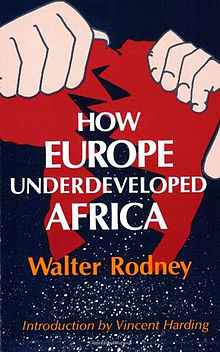
How Europe underdeveloped;oped Africa
Rodney puts forth several inextricably linked factors as hindrances towards more rapid advancement between the stages in Africa; a tendency towards subsistence, low surplus, confined trade, and undifferentiated social stratification. Traditional African economies were typically ‘subsistence’ economies. Often small villages and groups of clans farmed, hunted, fished, and looked after themselves independently with little reference to the rest of the continent. The vast majority of these communities fulfilled only a few of their needs through trade. Although innumerable trade routes existed throughout the continent only a few extended for long distances, like the routes across the Sahara or routes connected with Katanga (Congo) copper. Mainly, trade was between neighboring or not too far distant societies. Typically, barter was practiced as a system of exchange when volumes of trade were small, however, as trade became more complicated commodities that were easily convertible were used as systems of measure such as cloth, salt, iron, hoes, and cowry shells. Although gold and copper were also used extensively in some cultures since they were much more rare and scarce their use was restricted to measuring things of great value (Rodney 1981).
Rodney also recognizes that Communalism gave rise to social stratification in Africa in many instances. This stratification was often related to age differentiation within society, the establishment of artisan groups or secret societies with specialized skills and knowledge, and contact or conflict between differing social formations (fishermen, hunters, pastoralists, cultivators) at varying levels of development. In truly communal societies, the leadership was based on religion and family ties. The senior members of the society shared the work with others and received more or less the same share of the total product. No one starved while others stuffed themselves and threw away the excess. Social stratification, therefore, the basis for the rise of classes and uneven wealth distribution was the cause of social antagonisms in many cases.
In the case of age differentiation older men might use their control over land allocation, bride price, and markets to establish themselves as a privileged economic stratum. However, contradiction between young men and their elders did not typically result in violent revolution since those young men disgruntled with elders could leave their communities and set up for themselves or challenge the established principles within the society (Rodney 1981).
In the case of secret societies and specialized knowledge groups, they permitted knowledge, power, and wealth to pass into the hands of the elders of particular lineages. In either case, the trend was that some individuals and families were more successful than others, and those families established themselves as permanent rulers. In some instances, age became less important as a junior of a privileged family could succeed their parent once the notion of royal blood or royal lineage was established. Nonetheless, in this period of transition, African societies practiced Communalism in tandem with increasing social stratification and livestock, in particular, became unevenly distributed much more readily than land. Those families with the largest herds became socially and politically dominant (Rodney 1981).
Rodney notes that when two societies of different sorts come into prolonged and effective contact, the rate and character of change taking place in both is seriously affected to the extent that entirely new patterns are created. In most cases these contrasting groups were able to establish mutually beneficial economic relationships. However, conflict did also ensue in other cases. The most common clashes occurred between pastoralists and cultivators. Such conflict typically arose when one group imposed itself by force on another, giving rise to social classes with the conquerors on top and the conquered on the bottom. The result in each case was that a relatively small faction held control of the land, cattle, mines, and long-distance trade. It also meant that the minority group could make demands on the labor of their subjects-not on the basis of kinship but because a relationship of domination and subordination existed. This clash of social formations is also relevant to the concept of ‘underdevelopment’. Rodney expresses strongly that underdevelopment is not the absence of development, because every people have developed in some way or another. It rather connotes a particular relationship of exploitation of one group by another. The weaker of two colliding social formations (the one with less economic capacity) is bound to be adversely affected-and the bigger the gap between the two societies concerned the more detrimental are the consequences. The stronger group often exploits and acts to under develop the other (Rodney 1981).
Rodney explains that once African societies began to expand by internal evolution, conquest, or trade, the style of life of the ruling group became noticeably different. They consumed the most and the best that the society offered. Yet, they were the least directly involved in the production of wealth by farming, cattle herding, or fishing. The ruling class and kings had the right to call upon the labor of the common man for certain projects and for a given number of days per year. Although on one hand this meant greater exploitation Rodney proposes that it rather engendered greater material development and is attributed with giving rise to the State (Rodney 1981).
Rodney elucidates that the notion of royal lineages and commoner clans could only have meaning in the context of a political State with a concrete geographical existence. From a political perspective, the period of transition from Communalism, to increased social stratification, and towards Feudalism in Africa was one of State formation. Rodney explains that most African societies before 1500 were in a transitional stage between the practices of agriculture, fishing, and herding in family communities and in the practice of the same activities within States and societies comparable to Feudalism. The areas of Africa in which labor relations were breaking out of communal restrictions correspond to areas in which sophisticated political States were emerging. The position of Rodney on this matter is that the rise of States was itself a form of Development, which increased the scale of African politics and merged small ethnic groups into wider identities suggestive of nations. In his assessment, larger States in Africa had the most effective political structures and greater capacity for producing food, clothing, minerals, and other material artifacts (Rodney 1981).
Rodney further diagnoses that those societies that had ruling classes were concerned with acquiring luxury and prestige items. The privileged groups in control of the state were keen to stimulate manufactures as well as acquire them through trade. They were the ones that mobilized labor to produce a greater surplus above subsistence needs, and in the process they encouraged specialization and the division of labor. It is through the superstructure of this system of leadership and governance that the specialization can be put into context as being part of the complex of social relations that engendered more rapid development and changes in modes of production (Rodney 1981).
Although Rodney’s analysis provides great insight it is still problematic in the sense that it is founded upon European history and stages of development. These stages might not be replicable in Africa. In fact, Rodney points out admittedly that:
“Both Marxists and non-Marxists alike (with different motivations) have pointed out that the sequences of modes of production noted in Europe were not reproduced in Africa. In Africa, after the communal stage there was no epoch of slavery arising out of internal evolution. Nor was there a mode of production that was the replica of European feudalism. Marx himself recognized that there stages of development in Asia had produced a form of society which could not be easily be fitted into a European slot. That he called the ‘Asian mode of production’. Following along these lines, a number of Marxists have recently been discussing whether Africa was in the same category as Asia or whether Africa had it s own ‘African mode of production’. But the scholars concerned seem to be bent on finding a single term to cover a variety of social formations that existed in Africa from about the 15th century to the coming of colonialism” (Rodney 1981).
Similarly, in Asia, Marx’s analysis was not wholly applicable. Rodney also clarifies that:
Many observers have been puzzled by the fact that China never became capitalist. It entered the feudal phase of development virtually 1,000 years before the birth of Christ; it had developed many aspects of technology; and it had many craftsmen and artisans. Yet the mode of production was never transformed to one where machines were the main means of producing wealth and where the owners of capital would be the dominant class. The explanation is very complex, but in general terms the main differences between feudal Europe and feudal China lay in the superstructure-i.e., in the body of beliefs, motivations, and socio-political institutions which derived from the material base but in turn affected it. In China, religious, educational, and bureaucratic qualifications were of utmost importance, and government was in the hands of state officials rather than being run by the landlords of their own feudal estates. Besides, there were greater egalitarian tendencies in Chinese land distribution than in European land distribution, and the Chinese state owned a great deal of land. The consequence was that the landowners had greater powers as bureaucrats than as men of property, and they used that to keep social relations in the same mold. It would have been impossible for them to do that indefinitely, but they slowed down the movement of history. In Europe, the elements of change were not stifled by the weight of state bureaucracy (Rodney 1981).
Although he did not go further to better define a more African-specific form of analysis Rodney himself makes it evident that there is need to further refine Socialist Development theory in order to make it more relevant to the social and cultural setting at hand.
Cultural Relevance: Critique of Socialist Development Theory
Rodney makes a further valuable contribution to the idea of cultural relevance when he posits that:
A culture is a total way of life. It embraces what people ate and what they wore; the way they walked and the way they talked; the manner in which they treated death and greeted the newborn. Obviously, unique features came into existence in virtually every locality with regard to all social details. In addition, the continent of Africa south of the great Sahara desert formed a broad community where resemblances were clearly discernible. For example, music and dance had key roles in ‘uncontaminated’ African society. They were ever present at birth, initiation, marriage, death, as well as at times of recreation. Africa is the continent of drums and percussion. African people reached the pinnacle of achievement in that sphere. Because of the impact of colonialism and cultural imperialism, Europeans and Africans themselves in the colonial period lacked due regard for the unique features of African culture. Those features have a value of their won that cannot be eclipsed by European culture either in the comparable period before 1500 or in the subsequent centuries. They cannot be eclipsed because they are not really comparable phenomena. Who in this world is competent to judge whether an Austrian waltz is better than a Makonde Ngoma? (Rodney 1981)
This validates the notion that when one is evaluating culture, or the products thereof, one must use a line of analysis that is fitting and relevant. Although coming from a very different theoretical and analytical space Asante follows hot on the heels of Rodney. He argues that analysis of African culture must place Africa as subject rather than object (Asante 1991).
Asante offers a critique of the Marxist viewpoint of Development and explores several other aspects of the African personality that must also be equally considered when exploring African culture. The main thrust of Asante’s argument is that an unmodified line of Marxist analysis that is copied from European realities and pasted onto the African context oversimplifies the history of African people. Asante explains that an unmodified line of Marxist analysis sees the history of the world as merely the record of struggle of classes and, secondly, it dismisses the factor of racism in African and European interactions. This does not surprise Asante since from his viewpoint Marxism simply explains European history from a European view; it does not explain African culture from an African view. Asante further intimates that Marxism is derived from a similar basis as Capitalism because for both life is economics, not culture. Asante explores the idea that this class warrior attitude dominates the thinking of Marxists and Capitalists. Neither system finds fault with the destruction of one’s economic enemy so long as criminal laws are not violated. One may absolutely wipe out the economic competition in the Capitalist system and be applauded. Both systems believe in the utter destruction of aliens. Asante believes that this contradicts the typically African value that respects difference and applauds pluralism. For Asante, both systems are rooted in a European-centered materialism (Asante 1991).
Asante posits that where the West is said to favor materialism and the East, meaning largely India, is said to favor spiritualism, Africa combines the material and spiritual as Personalism:
Personalism invades the material as well as the material and spiritual. For us, therefore, the trees and the mountains have always possessed essences. We do not have to make absolute distinctions between mind and matter, form and substance, ourselves and the world. The self is the center of the world, animating it, and making it living and personal. Neither materiality nor spirituality is illusory. This is why the idea in western science of progress is troubling. Progress, for the West, is not more knowledge but more technique. How to do it faster, smoother, longer, louder, and with greater exploitation becomes the passkey to a techno-scientific future. Progress, in an Afrocentric[1] (African-centered) manner, is related to the development of human personality because we are the source of life for the material and the spiritual; when we become more conscious of ourselves we shall be advanced and will make progress (Asante 1991).
Asante further argues against an overly scientific view of human development:
Already with systems thinking, the idea of entropy, probability in statistics, and the admission that much phenomena are subjective concepts, the western outlook rises toward the Afrocentric view. For example, while some western ‘scientists’ used to believe in the reality of the ‘atom’, ‘neutron’, ‘energy’, and ‘gravity’, they now admit that these are merely descriptive concepts to help explain the metaphysics that otherwise cannot be explained. We know that the more you study any of these concepts the closer to spirituality you will come (Asante 1991).
As further critique of purely materialist Socialist theory Asante provides a succinct synopsis of the thinking of some of Africa’s Socialist heavyweights on the issue:
In Consciencism Kwame Nkrumah states a political philosophy for Africa. It is his view that African philosophy contains a moral-political substance that makes the unity of African thought and action concrete. Harmony with society, nature, and one’s fellows is the principal aim of African philosophy. He characterizes traditional African society as egalitarian and on the basis of this argument; he contends that any African philosophy must be based on authentic roots. Socialism is the most valid expression of the African political conscience, according to Nkrumah. Julius Nyere’s Ujamaa: African Socialism sets out the condition for African socialism. He explores in depth the divergence of African socialism and European socialism, demonstrating the originality of the African theory and method (Asante, et al 1990).
Osagie, a Nigerian Economist, is one of the more contemporary exponents of the Socialist ideal but also offers very valuable critique. He states that Socialism is one of the most influential and important political ideas ever introduced by philosophers. For him, this powerful social doctrine has attained the status of a secular religion in countries following the socialist path, especially among some of the most brilliant scholars and students. However, he admits that when we apply Marxist analysis and conclusions to Africa, we come face-to-face with a number of difficulties.
Is it appropriate to apply results derived from an analysis of industrial societies to others that are not only unindustrialized but also characterized by a form of capitalism, which can be characterized as peripheral, and client to the major capitalist centers of the West? … Can we seriously talk of classes and class antagonism of the scale foreshadowed in Marx’s analysis? Indeed, the situation is made more complex by the existence of such factors as competing ethnic groups and religious factors which did not loom large in Marxian analysis, but which are crucial in several African countries…Regarding the application of Marxism to Third World countries, it has been aptly remarked: “The social structures of these areas are vastly different from those of Europe, and it is difficult to see where Marxist categories could be applied (Osagie 1990).
Primarily, Osagie sees the necessity for an African-oriented ideological alternative to pure Socialism due to the irrelevance of class antagonism, dictatorship of the proletariat, and rejection of most Africans of atheism. For Osagie it is clear that Capitalism, or its closely related cousin, the mixed economy, cannot be alternatives because of their ill effects (unjustifiable inequalities in the distribution of wealth, exploitation of workers, domination by multinational corporations, and corruption). He argues that a modified Socialist analysis must consider the actual stages of Development of the economic superstructure of most peoples in Africa. Osagie offers a very seminal and highly important description of what he sees as the actual stages of Development of that superstructure:
First was the pre-colonial system where the base was functional self-sufficiency in production and the superstructure was communal ownership. International trade brought a segment of the pre-colonial system into contact with Europe; a new merchant class and a professional military class, finding their interest lay more with Europeans, joined forces with them to overthrow the pre-colonial system. Thus the protectorate was born. In the protectorate, the base was individualistic and haphazard production, and the superstructure was private property. Thus was breached the African’s communalism. The operation of the protectorate, in turn, encouraged the germination of new social forces that eventually destroyed the protectorate system. A crop of educated youths who could not rise to the top of their professions or were not admitted into the civil service because of the rigid racial barriers to professional advancement of Africans founded nationalist movements to oppose the colonial ruling class of white administrators. Nationalist agitation led to independence. But in effect, independence changed nothing significantly, as the economic base and the superstructure remained the same. What changed was the composition of the ruling class, as the nationalist leader simply replaced the European administrator. The newly independent economy could still be manipulated by the former colonial power by economic influence exercised through multinational corporations and some of the former nationalist leaders. This is today’s era of neocolonialism. In some countries, where nationalistic economic policies have indigenized the officer corps of the military, and a nationalistic economic policies made millionaires of commission agents, a new ruling elite soon emerged (military officers and business tycoons) after military coups. Even under the military, the economic base remains inefficient and production haphazard and the superstructure remains one of private property (Osagie 1990).
Osagie warns that in order to move from the situation described above an industrial base is a prerequisite. However, given the structure of most African economies a significant industrial base can only be developed within the framework of economic communities involving many nations. This school of thought he calls Integratism. Osagie describes in greater detail some of the key features of Integratism.
Instead of following Marx to have mass production, as base of the socialist system, the Integratists prefer to have as their economic base production by the masses. This would represent true democracy. The representatives of the masses now organized for socially beneficial production also become the political leaders. There would be no room for political parties that are vehicles for securing the class interests of the educated and monied elite. Other features of Integratism include emphasis on production for social use, the elimination of unjustifiable inequality in the distribution of income, the utilization of technology for human convenience, an educational system that provides required worker power suited to the chosen technology, and the mutually beneficial coexistence of religion and ideology. Another feature is opposition to particularism. Unlike socialism, which champions the interests of the proletariat against those of the bourgeoisie, Integratism does not favor a group or groups in society against the interests of other groups. Rather it seeks to identify the common interests that cut across the totality of society. Social cooperation, rather than confrontation is emphasized. It does not see present national borders as final lines of demarcation separating countries. Rather, it strives to achieve an international regrouping of nations that does not subjugate some countries to more powerful countries but balances regions and guarantees the equality of communities around the world (Osagie 1990).
Although Rodney had himself observed what was problematic about a strict Socialist analysis that was based purely on the example of European stages of development and noted the peculiarities of African culture and identified what was specific about the African development trajectory he was not adequately equipped to explore the cultural question in the required depth. Asante’s call for the exploration of Personalism as opposed to pure materialism and Osagie’s more accurate description of the dominant African social superstructure have provided great insight and will help in rendering the Socialist perspective more culturally relevant to the proposed study of the Zulu.
With some modifications, the Socialist line of analysis will therefore be pivotal throughout the proposed study in analyzing the changes in the social superstructure of the Zulu, their political history, and examining the impact of these on their material development. This modified analysis will be useful in exploring not only the initial establishment of the Zulu clan, but also inter-clan rivalries, increased social stratification through the establishment of a ruling class, conglomeration of clans into Kingdoms, professionalisation and expansion of the military, internal conflict between the ruling class, conquest, contact with other cultural groups such as the Khoi-San, the establishment of a clearly defined Zulu Nation with clearly defined borders, the extension of trade, and the control of capital and demand for luxury items by the ruling class.
[1]An ideological statement of the unity of African culture and the need for a new Consciousness. It raises consciousness of our frame of reference. It advocates that African people reorganize their frame of reference so that they become the center of analysis and synthesis. Asante contends that there are two types of Consciousness, a Consciousness of oppression and a Consciousness of victory to create liberating motifs and messages in the way that we communicate (Asante 1991).
Bibliography
- Walter Rodney Speaks: the Making of an African Intellectual (1990)
- A History of the Guyanese Working People, 1881-1905 (1981)
- Marx in the Liberation of Africa (1981)
- Guyanese Sugar Plantations in the Late Nineteenth Century: a Contemporary Description from the “Argosy” (1979)
- World War II and the Tanzanian Economy (1976)
- How Europe Underdeveloped Africa (1972)
- A History of the Upper Guinea Coast (1970)
- The Groundings with my Brothers (1969)
- Kofi Baadu Out of Africa (children’s book) Georgetown, [Guyana]: [s.n.]
- Lakshmi Out of India (children’s book) Georgetown, Guyana: The Guyana Book Foundation, 2000.
Further reading
- “And finally they killed him”: speeches and poems at a memorial rally for Walter Rodney, 1942-80, Oduduwa Hall, University of Ife, Nigeria, Friday, 27 June 1980.
- Walter Rodney: Revolutionary and Scholar: A Tribute. Los Angeles: Center for African-American Studies and African Studies Center, University of California, 1982.
- Alpers, Edward A. and P. M. Fontaine (eds), Walter Rodney, Poetic Tributes. London: Bogle-L’Ouverture, 1985.
- Campbell, Horace. Rasta and Resistance: From Marcus Garvey to Walter Rodney. Trenton, NJ: Africa World Press, 1985.
- Chung, Clairmont: A Promise of Revolution, Monthly Review Press, 2013
- Gabriehu. Dangerous Times: The Assassination of Dr. Walter Rodney. Brooklyn, NY: Gibbi Books, 2003.
- Lewis, Rupert. Walter Rodney`s Intellectual and Political Thought, Wayne State University Press, 1998
- Lewis, Rupert. Walter Rodney: 1968 Revisited
- Issa G. Shivji, “Remembering Walter Rodney”, Monthly Review, Volume 64, Issue 07 (December 2012).















